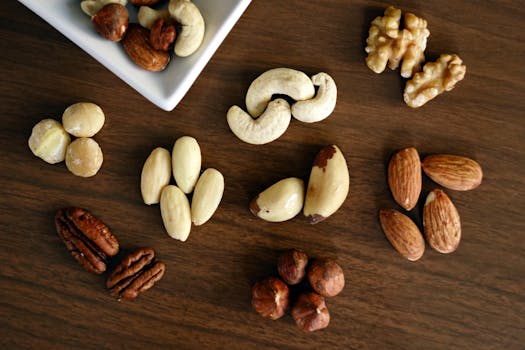Cats are known for their curious nature, especially when it comes to food. If you’ve ever wondered whether currants are safe for your feline friend, you’re not alone. Many pet owners are unsure about what’s safe and what’s toxic for their pets, and currants can be a confusing topic. So, can cats eat currants? Let’s dive in to uncover the truth and ensure your cat stays happy and healthy.
🍇 What Are Currants, and Why Are They a Concern?
Currants are small dried fruits that are often confused with raisins or fresh blackcurrants. True currants come from the blackcurrant bush (Ribes nigrum), but in many countries, the term “currants” can also refer to tiny dried grapes, similar to raisins or sultanas.
Here’s where it gets tricky: while true blackcurrants are generally considered safe for cats, dried currants (which are actually grapes) are highly toxic to cats. Even a small amount can cause severe health issues, including kidney failure.
If you’re unsure whether your currants are dried grapes or true blackcurrants, it’s safest to avoid feeding them to your cat altogether.
⚠️ Are Currants Toxic to Cats?
Dried currants (grape-based) are toxic to cats. While researchers are still studying why grapes and their dried forms are harmful to pets, it’s clear that even small amounts can lead to serious health problems.
When a cat consumes toxic currants, they may experience symptoms like vomiting, lethargy, or loss of appetite. In severe cases, it can result in acute kidney failure, which is life-threatening if left untreated.
True blackcurrants, on the other hand, are not known to be toxic. However, they aren’t a natural part of a cat’s diet and may cause mild digestive upset if consumed in large quantities. It’s always better to err on the side of caution and avoid feeding your cat any type of currant.
🐾 Symptoms of Currant Poisoning in Cats
If your cat has accidentally eaten dried currants, it’s important to act quickly. Look out for these common symptoms of currant poisoning:
- Vomiting (often within a few hours)
- Diarrhea
- Loss of appetite
- Lethargy or weakness
- Dehydration (dry gums, sunken eyes)
- Abdominal pain or discomfort
- Reduced urination or difficulty urinating (a sign of kidney trouble)
If you notice any of these signs, contact your veterinarian immediately. Early intervention can make a significant difference in your cat’s recovery.
🚨 What to Do If Your Cat Eats Currants
Accidents happen, and if your cat eats currants, it’s crucial to act quickly. Here’s what you should do:
- Identify the type of currants: Are they dried grapes or true blackcurrants? If you’re unsure, treat them as toxic.
- Contact your veterinarian: Call your vet or an emergency animal poison control hotline for advice.
- Monitor your cat: Keep an eye on their behavior and note any symptoms, even if they seem fine initially.
- Do not induce vomiting: Only induce vomiting if instructed to do so by a veterinarian.
Your vet may recommend bringing your cat in for an examination, blood tests, or even hospitalization to monitor kidney function. The sooner you seek help, the better the outcome for your cat.
🛑 Foods to Avoid for Cats
Currants aren’t the only human food that can be harmful to cats. Here are some other common foods to avoid:
- Grapes and raisins (highly toxic)
- Chocolate
- Onions, garlic, and chives
- Alcohol
- Xylitol (a sugar substitute found in some sweets and gum)
- Caffeinated drinks (coffee, tea, energy drinks)
Always keep these foods out of reach and make sure everyone in your household knows not to share them with your cat.
🍴 What Can Cats Eat Safely?
While cats are obligate carnivores, meaning their diet should primarily consist of meat, there are some safe human foods you can occasionally share:
- Cooked, unseasoned chicken or turkey
- Small amounts of plain, cooked fish (e.g., salmon or tuna)
- Plain, unsweetened yogurt
- Steamed vegetables like carrots or green beans
Always introduce new foods in small quantities and consult your vet if you’re unsure about their safety.
FAQs
Can cats eat fresh blackcurrants?
Fresh blackcurrants are not considered toxic to cats, but they may cause mild stomach upset. It’s best to avoid feeding them to your cat.
What should I do if my cat eats dried currants?
Contact your veterinarian immediately. Dried currants (grape-based) are toxic and can lead to kidney failure.
Why are grapes and currants toxic to cats?
The exact cause is unknown, but compounds in grapes and their dried forms can damage feline kidneys, even in small amounts.
Are there any safe fruits for cats?
Some fruits like blueberries, apples (without seeds), and watermelon (without seeds) are safe in small amounts. Always check with your vet first.
How can I prevent my cat from eating toxic foods?
Store harmful foods out of reach, educate family members, and avoid feeding your cat table scraps.
References
Book a $49 online vet consultation at https://www.dialavet.com for fast, expert advice.























